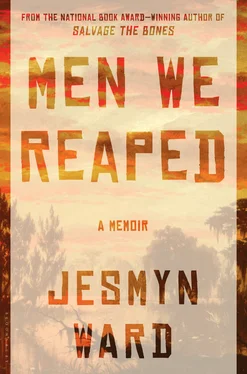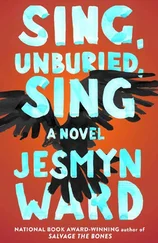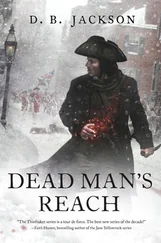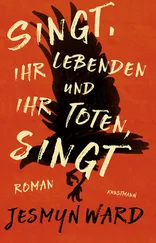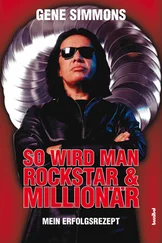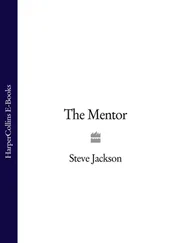But on most Saturday mornings, we were free from adult worries. The house was ours, since we woke at 6:00 A.M. to sneak to the living room, where we turned on the TV for Saturday morning cartoons. We lay for hours on the living room floor, recently carpeted in dark blue, to watch the Smurfs, the Snorks, Tom and Jerry, the Ewoks, the Looney Tunes. Our favorite show was Popeye . They broadcast the show out of a studio in New Orleans: the Popeye’s fast-food chain invited White kids to the studio to sit in bleachers to balance small, greasy cartons of fried chicken and biscuits on their laps while a host introduced all the cartoons. I was so hungry then my stomach burned and hurt in sharp, little pains.
“I’m going to make us something to eat,” I said. Every Saturday, I scaled counters to reach in cabinets, took out the WIC-issued cornflakes and powdered milk. I mixed the powdered milk by the instructions in a half-gallon pitcher, fixed us all bowls of cereals that we ate standing in the doorway so we could watch cartoons and eat. We would be whipped if we ate and spilled anything in the living room. The cereal — no, the milk — didn’t taste right. It didn’t taste like the store-bought milk I remembered having before we moved to my grandmother’s, when my father had a good job and could afford milk that came wet and cold in gallons. He’d lost his job at the glass plant after he mislabeled boxes, and was moving from job to job. Some Saturdays I added cups of sugar to the powdered milk because I thought it would make it taste like the real thing. It didn’t, but at least it was sweet. Joshua and Aldon and Nerissa and I ate the clumpy, watery mess over our cornflakes, and we were still hungry. Every Saturday we stared at those fair-haired children on Popeye , healthy and plump and pink, who got to cup their hands to their eyes like binoculars and screech “Roll ’em!” before each cartoon while their laps turned splotchy from the grease leaking from their chicken boxes. We ate everything in our bowls, scraped the bottoms with our spoons, drank the last milky sugar from the bowl, and I, with the cereal disintegrating to silt in my spiteful stomach, hated them.
Between jobs, my father spent some time with us. The Last Dragon was my father’s favorite movie, so we watched it over and over until we knew all the words. We acted it out in the dining room turned bedroom; he was Sho’nuff, Josh was Leroy Green, and I was Laura Charles. When my father was home, it seemed that my mother wasn’t: I never saw them in the same room together. I knew something was wrong, but I could not articulate what it was. Sometimes my father strapped us to the back of his motorcycle, where my brother or I clung to his back like monkeys, and he rode us around DeLisle or Pass Christian, headphones smashed into our soft heads under the weight of the helmet. Prince’s “Purple Rain” blasted from the cassette player my father had strapped to his waist. Sometimes I think I should have known he was trying to tell me something, something like I am a man, I am young and handsome and alive, and I want to be free , but I did not. After a few weeks, my father got a job at an oyster factory in Pass Christian, which paid much less than the glass plant. On his hours off, he dressed in expensive leather riding suits he’d bought when he worked at the plant, combed his long black hair back into a braid, and rode the coast. What I did not know at the time was that he was riding to see his girlfriends, of which there were many, to strap them to the back of his motorcycle. I don’t think he told them that he was married or had a family, and I don’t know if he was thinking about them or us when he brought home five-gallon buckets of fresh oysters from his job still in the shell and stood out in the backyard shucking them. He still wore his long black rubber boots and work overalls, and ate the oysters raw while the sun set. Sheets, fresh on the line, billowed behind him.
“Can I have one?” I asked him.
“You’re not going to like it,” he said.
“I just want to try it.”
“They’re alive,” he said, “when they go down.”
“They see all the way down your throat?”
He nodded.
“You still want to try one?”
I wanted to do it because he said I couldn’t. I wanted him to be proud of me. I wanted it to be the two of us standing in the yard, eating oysters in the dusk, always.
“Yeah.”
He skewered the shell, popped it open with a flip of his wrist. The oyster meat was gray, streaked with silver, a purple trill at the center where my father cut it from the shell.
“Here,” he said, holding the oyster out to me flat on the blade, as if it were a spoon. “Open your mouth.”
I opened my mouth, sucked the oyster in. It was warm and salty and wet: I imagined it smothering in the pink insides of my mouth, staring at the dark tunnel of my throat in despair. I held it there, considering.
“Don’t spit it out,” my father said, and the burlap sack of oysters at his feet shifted, clinked. “Do not spit it out.”
It was too warm. It was alive.
“Swallow.”
I consigned the oyster to death and swallowed. My father looked pleased.
“You like it?”
I’d hated it. I shook my head. My father laughed, and his teeth were very white in his face, which became duskier and darker as the sun set. He stuck the knife in the seam of the oyster again, shucked again. He balanced the oyster delicately on the knife, brought the knife to his mouth, and sucked the oyster inside. I switched from foot to foot, scratching the inside of my calf with the thick skin on the bottom of my feet. I wondered how he never cut himself, how he could be so beautiful, so tall, so impressive.
On my eighth birthday, I didn’t have a party. The year before, my parents had thrown me an extravagant party at my grandmother’s house, where all my cousins came to sing “Happy Birthday” to me over a large pastel sheet cake, and I’d worn a fancy purple and white dress, and been given a brand-new bicycle with a lavender banana seat. The following year, money was tight. On this birthday, my parents walked me out the door off the kitchen of my grandmother’s house and unspooled a white and blue rope, thick as my neck, from the trunk of the family car. I was puzzled. My father laughed. The rope was long, twice as long as the driveway.
My father wrapped the rope around his shoulders and under his arms until he wore it like a great, thick coat, and then he climbed the live oak tree that shaded the side of the house and reached out its dark limbs over the roof. Once he reached the branch that overhung the roof, he inched his way along the limb until he was near the middle. He un-spooled the rope and tied one end of it in a massive knot, which he tugged and tested until he was sure it wouldn’t give. He tied the other end of the rope, tested that knot as well, before sliding down what was now a tall swing, at least thirty feet long, made of rope so thick a grown-up could sit on it and swing without a wooden seat and would still be comfortable.
“Happy birthday,” my mother said. She put one hand on the back of my neck; her hand was rough from constant rubbing against sheets and bedspreads and towels and from the industrial-grade cleansers that the hotel housekeepers used. Years later, she would tell me that she was miserable at that job, that the work was hard and endless, that the women that she worked with gossiped about her and my father’s relationship and were overtly mean and catty to her.
“Do you like it?” my mother said. Even at eight I knew she felt bad for not being able to give me more, for giving me, in its basic incarnation, a piece of rope for my birthday.
“I love it,” I said, and I meant it. I sat in the seat and my father pushed me for a few minutes before going inside. Then I grabbed it in both hands and pulled my way up it, holding tight with my legs, struggling with my whole body, until I got to the top, where I touched the underside of the branch my father had straddled minutes before. I was high, at least thirty feet in the air, and my heart tripped. I looked out over the roof of the house, the yard, the next door neighbors’ small maroon trailer, the street, the mysterious woods. I felt proud of myself for being able to climb, for being not afraid, so unafraid that I would spend hours during the summer and winter climbing the rope, gripping it with my thighs, and perching high on the swing, watching the world. And something about clinging to the top of that rope made me feel closer to my mother and father, even though, physically, I was as far away from my parents as I could get. Sometimes if I begged persistently and sweetly enough one of my uncles would pull the seat of the swing back, hold me above their heads, and let me go, and I would fly across the yard, white-knuckled as I gripped the swing, ecstatic.
Читать дальше
